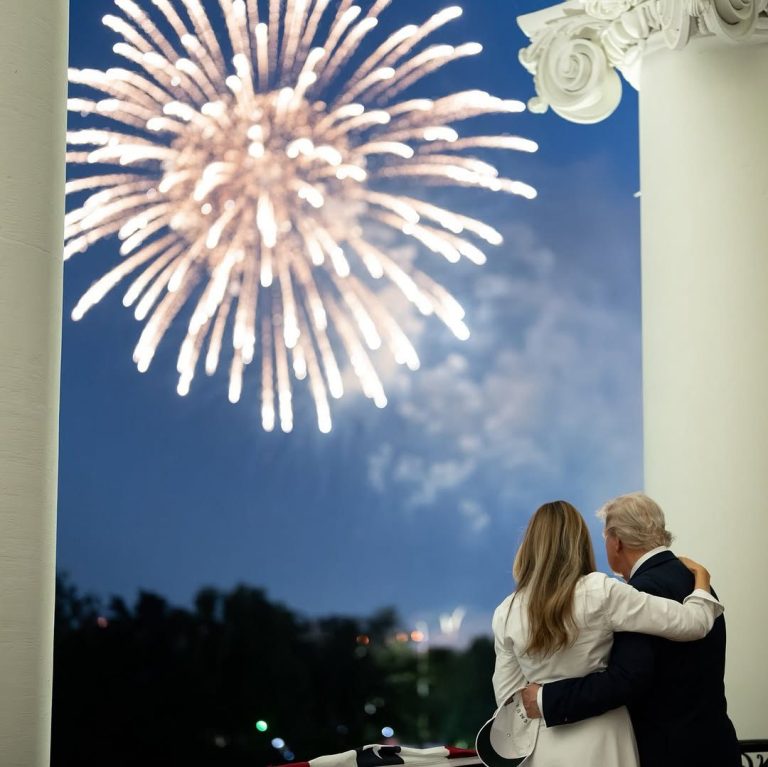Donald Trump continues to be a central figure in world affairs, with every move analysed and debated across the UK. Since his return to office, Trump has commanded headlines with bold domestic policies, trade standoffs, and highly anticipated summits. For UK readers, his latest decisions mean changes to global economics, new geopolitical realities, and unanswered questions about his health. This August, Trump stands at the crossroads of controversy, power, and diplomacy, with British media closely engaged.
Tariff Strategy and the Impact on the UK Economy
Trump’s new round of tariffs has shaken international markets and caught the attention of the British business community. On 30 July, Trump signed an executive order suspending the de minimis exemption for imports into the United States, set to take effect on 29 August. This move is part of a broader trend: his much-publicised “Liberation Day” announcement brought in updated tariff rates affecting 67 countries, with rates between 10% and 41% depending on origin. For nations not listed, a baseline 10% tariff applies. Canada and India, among notable exceptions, are slapped with punitive tariffs of up to 35% and 50% respectively, targeting sectors like textiles and crude oil imports.
For UK trade partners, Trump’s aggressive stance on tariffs is more than an American affair. It triggers friction in trade negotiations and affects sectors as diverse as bioethanol, textiles, and automotive parts. British businesses are left uncertain about future access to US markets and face new costs that could impact jobs and prices at home.
US-UK Relations: Navigating Uncertainty
Britain’s own bioethanol industry is one of the first to feel the consequences, with the government stating it will not bail out domestic producers hit by US tariffs. Investors and economic commentators in the UK warn of slowed growth and reduced competitiveness if the current US-UK partnership turns combative under Trump’s policies. Market sentiment remains fragile, and any hint of trade escalation can send shockwaves through financial markets. Leading analysts urge British policymakers to prepare for negotiations that protect national interests and maintain essential supply chains.

Trump’s Second Term: Search Trends and Public Sentiment
British interest in Trump’s presidency has soared, reflected in Google search data throughout 2025. According to pollsters and data analysts, searches for “Trump” and “chaos” climbed 320% compared to the same period in his first term. The US leader’s unpredictable style—likened to the cartoon character “Professor Chaos”—has sparked both anxiety and fascination among British viewers. UK voters and investors alike crave stability, fearing the volatility that comes with sudden changes and trade policies.
The Alaska Summit: Diplomacy Under Scrutiny
One of the year’s most closely watched events was Trump’s high-profile summit in Alaska with Russian President Vladimir Putin. The meeting, aimed at resolving the Ukraine war, drew global headlines. Both Trump and Putin claimed the talks were productive, but no breakthrough emerged. Areas of agreement were acknowledged, yet key issues stalled progress. The summit was covered widely in UK outlets, with real-time updates and analysis shaping British views on US foreign policy.
Trump’s approach—rolling out the red carpet and initiating direct talks—revived personal rapport yet offered little for UK analysts hoping for change in global security. For British leaders, the lack of a clear outcome meant continued uncertainty in Europe’s eastern flank and ongoing support for Ukraine’s sovereignty.
Health Speculation: Leadership and Physical Fitness
Trump’s health has become a subject of considerable speculation in the UK press after recent summit footage emerged. Videos circulated online showed the 79-year-old president “staggering” as he approached Putin at the Alaska summit. Observers raised questions about his ability to fulfil demanding duties, with rumours intensifying every week. While Trump insisted his meeting with Putin was “extremely productive,” UK-based experts caution that perceptions of health can shape international credibility and negotiations.
British Perspectives and Policy Responses
UK sentiment towards Trump is a blend of concern, scepticism, and hope for stable policy. Political experts note that British interests depend on predictable trading arrangements, strong alliances, and clear communication from the White House. The government faces mounting pressure to counter any negative effects of US tariffs while supporting British industries at risk.
Public opinion is nuanced. While many Britons dislike volatility, they also recognise that US leadership plays a direct role in world stability, economic growth, and the security of Europe. The government must balance engagement with the Trump administration against standing firm on British values and priorities.
The Road Ahead: UK Vigilance in a Changing World
As Trump’s decisions continue to ripple across trade agreements and diplomatic tables, the UK must remain vigilant. British media and policymakers follow each announcement, assessing the impact for jobs, exports, and Britain’s global standing. Trump’s willingness to pursue tariffs, reset alliances, and engage in headline-making summits ensures that his influence will remain a focal point of UK debate.
For everyday UK readers, Trump’s second term is a story not only of American upheaval but also of Britain’s response and resilience. With markets closely watched and diplomatic ties tested, Britain’s own strategies are more important than ever. As the world adapts to new realities, the UK’s relationship with Trump’s America will shape its future—one headline at a time.
Read more: weight loss injections


